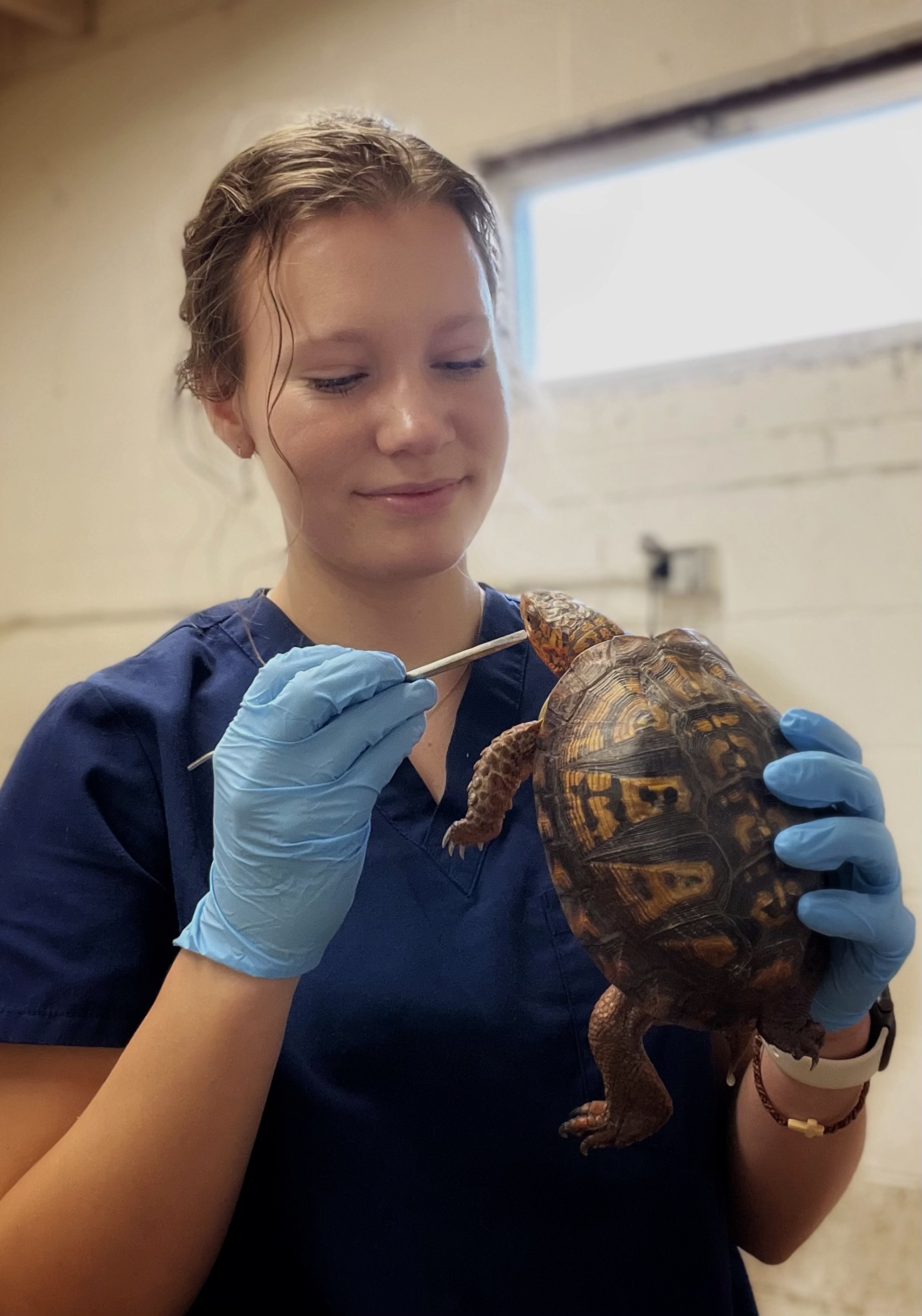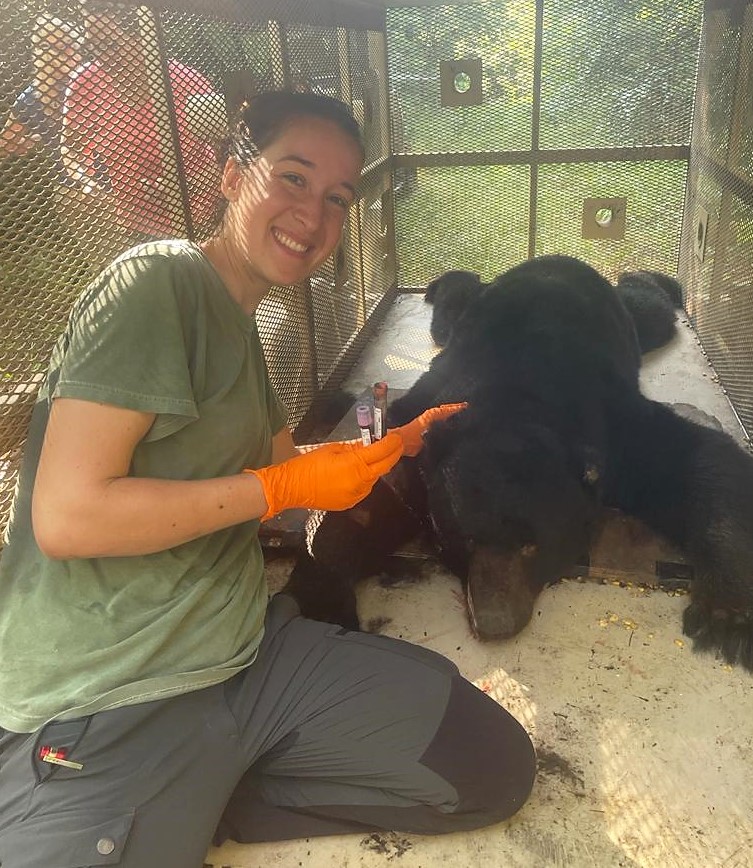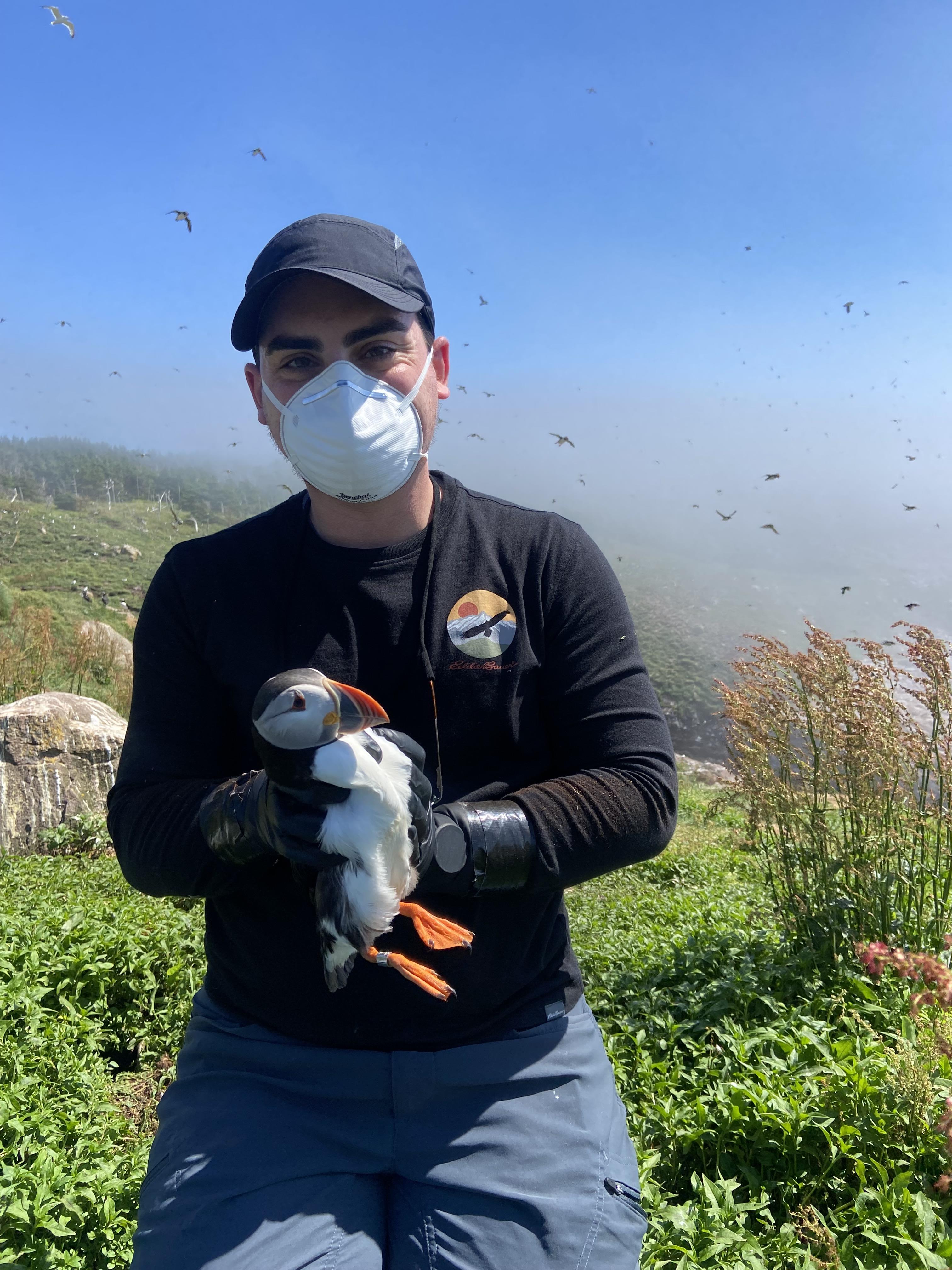WDA STUDENT AWARDS COMPETITION
The WDA's mission has a strong focus on nurturing up-and-coming wildlife health professionals, as they provide a tantalising and inspiring glimpse of what is to come. We want to celebrate young researchers by recognising their passion, their commitment and their potential, and the WDA Student Awards are the ideal vehicle to achieve this. They are an investment in the future of wildlife health globally.
The following student awards are offered annually, and selected winners are recognized at the annual international WDA conference. The aim of these awards is to recognize outstanding student research and scholarship in the field of wildlife health, encourage student participation in the Association and attendance at our annual international conference.
To learn more, click on each of the awards listed below.
The NEW DEADLINE for submission of SRRA and SSA application is May 1, 2024 at 5 pm Samoa Standard time (UTC-11)
This award is given to the student determined to have the best research project in the field of wildlife health or disease. The selected student is the keynote speaker during the student presentation session at the annual international WDA conference.
This award acknowledges outstanding academic and research accomplishment, productivity, and future potential in pursuit of new knowledge in wildlife health or disease. Two scholarships are awarded annually.
Questions on the SRRA or SSA Awards? Contact Co-Chair of the WDA Student Awards Committee: Stuart Patterson, student.awards@wildlifedisease.org.
Submit your abstract(s) via the conference website by the relevant abstract deadline:
On Country - June 1, 2024
Off country 0 September 1, 2024
This award acknowledges outstanding oral presentation of research findings at the annual international WDA conference.
Learn more about the 'history of the Terry Amundson Presentation Award' HERE.
WDA ART OF SCIENCE AWARDS
In 2024, the conference will offer students very different and unique opportunities for presenting their work in a space where science and art meet. Details coming soon.
Student Award Recipients
Student Award Winners 2023 from the 71st Annual International Wildlife Disease Association Conference
Student Oral Presentation Winners
Winner of the Terry Amundson Best Student Presentation Award:

Maris Daleo, University of Illinois - “Development and analytical validation of a quantitative PCR assay for detection of Spheniscid alphaherpesvirus 1 in penguins”.
I am from Davis Junction, Illinois and in 2021, I graduated as a student athlete from Carleton College with degrees in Biology and Studio Art. I am currently starting the second year of my PhD in the Wildlife Epidemiology Lab at the University of Illinois College of Veterinary Medicine, pursuing both my DVM and PhD through the Veterinary Medical Scholars program at the University of Illinois Urbana-Champaign..
My research explores population and disease management of turtles confiscated from the illegal wildlife trade. This process involves performing longitudinal studies to understand disease shedding in confiscated turtles, as well as surveying free-ranging turtle populations to identify potential release options. I am also investigating several DNA viruses, such as ranavirus, and how they impact confiscated turtle health.
Additionally, I work in Illinois’s Veterinary Diagnostic Laboratory as a research assistant where I develop diagnostic tools for our lab section, such as the penguin herpesvirus assay I discussed in my presentation. I am interested in designing more accessible diagnostic tools to help all working in wildlife health.
I feel very lucky to be a part of the WDA community, and I cannot wait to pursue a future in wildlife conservation.
Check out Maris' presentation
Terry Amundson Best Student Presentation Honourable mention:

Raquel Francisco, University of Georgia - “Diagnostic Tips: Performance of various SARS-CoV-2 detection methods in white-tailed deer (Odocoileus virginianus)”
I am a PhD student at the Southeastern Cooperative Wildlife Disease Study at the University of Georgia. I find research questions revolving around human-wildlife interface intriguing due to their dependence on understanding multiple aspects of the relationships between humans, animals, and environment.
My current doctoral research continues to revolve around One Health. I have transitioned into investigating the health implications of the emergence of Sarcoptes scabiei, the causative agent of sarcoptic mange infestations in North American black bear populations. My questions include a variety of aspects such as mite population genetics, bear ecology, veterinary toxicology, and human dimensions in hopes of making the research outcomes applicable to a variety of stakeholders. In addition, I am also part of a research group that is attempting to contextualize wild white-tailed deer SARS-CoV-2 infections into a broader management scope.
Looking forward, I aim to continue to conduct wildlife health research within a One Health framework, allowing for applicable, informative, collaborative, and innovative investigations. I hope to carry my knowledge into the government sector as a wildlife veterinarian participating in large scale collaborative projects to manage diseases in wildlife and human populations.
Check out Raquel's presentation
Terry Amundson Best Student Presentation Honourable mention:

Anastasia Towe, Kansas State University - “Impacts of Batrachochytrium salamandrivorans exposure on Eastern newts reproductive fitness”
I am a current Exotics, Wildlife, and Zoological Medicine intern at Kansas State University. I completed my PhD program at the University of Tennessee College of Veterinary Medicine this year, after graduating from the DVM program there in 2020. I had the privilege of working with Dr. Debra Miller and Dr. Matthew Gray as a member of the Amphibian Disease Lab in the Center for Wildlife Health at UT for the last six years.
The research I presented at the WDA conference this year was the third chapter of my dissertation, a study investigating the impacts of Batrachochytrium salamandrivorans exposure on reproductive fitness in Eastern newts. This project served as a perfect combination of my passions for wildlife disease research, reproductive physiology, and pathology.
Currently I am working on finalizing manuscripts from my dissertation, which overall was an evaluation of treatment options and investigation of pathogenesis of chytridiomycosis in North American salamanders. While I have transitioned into full time clinical work, I also continue to pursue wildlife research projects, especially those that will contribute to the health and conservation of imperiled amphibian species.
In the future I hope to continue operating at the crossroads between the health of free ranging wild animals and those in managed care and contribute to research supporting wild population protection and restoration efforts.
WDA Student Poster Award:
Winner - Best Student Poster:
.jpg)
KM Barnett, Emory University - “Prophylactic treatment for Batrachochytrium dendrobatidis increases amphibian infection loads in a field trial: A possible consequence of increased host survival”.
I’m a 5th year PhD candidate in the Population Biology, Ecology, and Evolution Program at Emory University and I’m advised by Dr. David Civitello.
My work is motivated by a desire to use disease control tools to conserve vulnerable wildlife populations. Through my work, I seek to understand how ecological factors and variation in acquired resistance responses influence the effectiveness of wildlife disease control interventions. More specifically, for my dissertation, I’m evaluating the efficacy and feasibility of a prophylactic treatment for chytridiomycosis, a disease that poses a major threat to amphibian biodiversity.
My research addresses questions across multiple ecological scales using a combination of lab experiments, disease modeling, and fieldwork. First, I conducted lab experiments to assess if strain-specificity and host exposure history influence treatment efficacy. Then, I built a system-specific agent-based model to identify factors that may be important for prophylaxis success or failure, such as treatment efficacy, population coverage, and timing. Lastly, I conducted a Before, After, Control, Impact (BACI) designed field experiment to test the effectiveness of the prophylactic treatment in a natural setting and I used the model to aid in interpretation of the field experiment results.
I am defending my dissertation in October of 2023. I’m passionate about conservation-motivated wildlife disease research and I plan to pursue a postdoc where I can continue this line of study in a different system and further develop my modeling skillset.
View KM’s winning poster HERE.
Honorable mention - Student Poster Award

Jordan Wight, Memorial University of Newfoundland “Antimicrobial-resistant Escherichia coli isolated from wild birds in Newfoundland, Canada differ greatly based on host origin and anthropogenic interactions”
I completed my BSc in Biology at Memorial University of Newfoundland in 2017 and I am currently in the final year of my PhD, also at Memorial University.
During my undergraduate degree I worked with Environment and Climate Change Canada, monitoring fecal contamination in shellfish aquaculture farms in marine environments. This experience hooked me on microbiology, with the early part of my PhD thesis work focusing on fecal contamination and antimicrobial resistance in freshwater environments. The aim was to define what microbes are found there, determine how those microbes got there, characterize the role of said microbes, and to elucidate the threats posed to both human and animal health within a One Health framework.
While pursuing these goals, I became involved with avian influenza surveillance in wild birds and began incorporating a wildlife perspective into aspects of my thinking, with a focus on understanding the role of wild birds in spreading various microbial pathogens between and across environments.
My current focus centers around microbial pathogens in wild birds, specifically AMR E. coli and AIV, and how their movements and interactions with anthropogenically-impacted environments contribute to infection and dissemination of microbes across environments.
I hope to continue to work on these research goals with a focus on wildlife in my future postdoc, and further, into a career as a government research scientist.
See Jordan’s poster HERE.
Previous Student Award Winners
Click HERE for a PDF of previous Student Award winners.